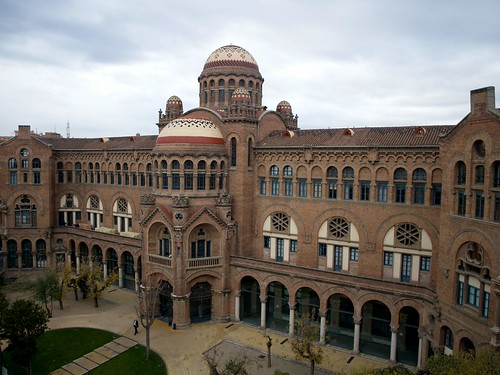Ohhhhhhh, this week I was too busy to listen to the seminars. Fortunately, on Thursday I finally got a little time to audit a speech by a Chinese guy from Upenn. Haha~ It is not common to see any other Chinese here.
However, I came there because of the topic, not his name or something else. I was attracted by his title at the first glance, since I really would like to know something about social learning. That's a pretty interesting issue to talk, and requires enough mathematical skills. So....the related information first, as usual:
Dynamic Pricing in the Presence of Social Learning Xi Weng (University of Pennsylvania)
and here is the abstract attached:
This paper considers a monopolist selling a new experience good over time to many buyers.
Buyers learn from their own private experiences (individual learning) as well as by observing other buyers' experiences (social learning). Individual learning generates ex post heterogeneity, which affects the buyers' purchasing decisions and the firm's pricing strategy. When learning is through good news signals, the incentive to exploit the known buyers for the monopolist causes experimentation to be terminated too early. After the arrival of a good news signal, the price could instantaneously go down in order induce the remaining unknown buyer to experiment. When learning is through bad news signals, experimentation is effcient, since only the homogeneous unknown buyers purchase the experience good.
Enough background. I am interested in social learning because it considers a dynamic process of the production delivering process. Such as Ipod and some other fashion products sold in the market, there must be some "loyal" fans who would like to try and share their experience firstly, and then more and more potential consumers will do the purchase in turn.
Eh.... Nothing more to say? Maybe there are too many math formulas which makes me confused......Anyway, good luck, Xi!


